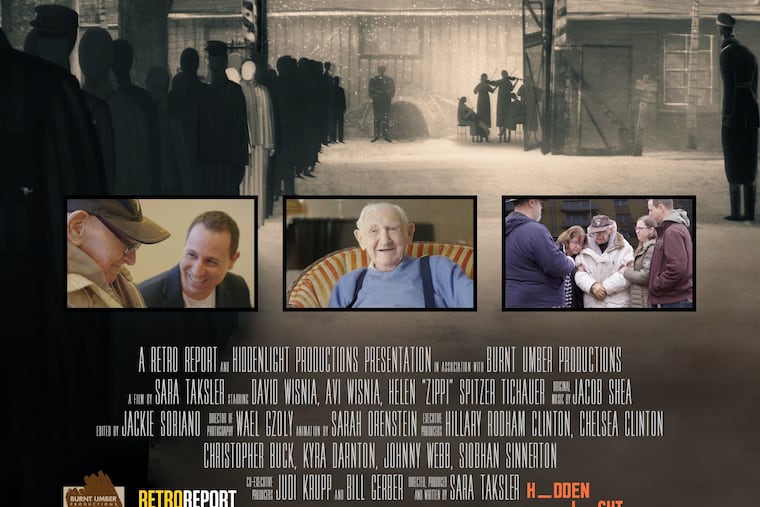A local Holocaust survivor’s story of love and the power of music makes its Philly debut
'How Saba Kept Singing' is a documentary about the remarkable life of Holocaust survivor and Levittown, Pa.-native David Wisnia. The Weitzman Museum is hosting its Philly premiere.

For David “Saba” Wisnia, music was survival in the face of unspeakable horror. It was the language of love when words alone could not suffice. It was his unbreakable tie to faith, family, his defiant belief — despite everything — in beauty and good.
He was a Holocaust survivor and liberator and went on to lead a remarkable life. By the time Wisnia died at age 94 in 2021, he had raised a family and had strong ties in the Levittown, Pa., community. He served many years as a cantor — 28 years at Temple Shalom in Levittown and then 23 years with Har Sinai Hebrew Congregation of Trenton.
A musical child prodigy, he was a teen growing up in Warsaw when Germany invaded Poland. After his parents and younger brother were murdered, Wisnia was sent to Auschwitz.
Once his Nazi captors realized he had such a beautiful voice, they made him perform. He believed it helped him stay alive. Despite all that he endured and witnessed, Wisnia would later call himself a privileged prisoner.
But hate wasn’t all the teenager endured.
Wisnia was 17 when he and another prisoner, Helen Spitzer, whom he called Zippi, managed to have a clandestine love affair at the death camp. Older at 25, Spitzer was a graphic designer. In their moments alone, they sang to each other. Spitzer was able to exert some crucial influence on her young lover’s behalf that he wouldn’t know about for many years to come.
As the war turned against Germany and the Nazis began retreating, the couple was forced by their captors to go separate ways. Their pledge to meet immediately after the war wasn’t fulfilled, but that still wasn’t the end of their story. Each went on to find separate new lives of love, marriage, family, and purpose. And through it all, it was music and his inspired voice that saw Wisnia through.
“Music was his life,” said Avi Wisnia, 40, one of Wisnia’s grandchildren, who is also a musician.
He and his grandfather performed together and enjoyed a close relationship.
In 2015, with the release of Wisnia’s book, One Voice, Two Lives: From Auschwitz Prisoner to 101st Airborne Trooper, A Holocaust Memoir, family members learned things about Wisnia’s life he had never shared.
How Saba Kept Singing, the documentary on his life and a collection of some of those unknown facts, will receive its Philadelphia premiere Thursday, April 13, the last night of Passover, at 6 p.m. at the Weitzman National Museum of American Jewish History.
The documentary, which began filming a few years after the book’s release, goes beyond the memoir because Wisnia took his life beyond it. It encapsulates his quest for answers, peace and, ultimately, triumph in a life lived on his own terms, with music. Wisnia reunited with Spitzer near the end of their lives.
Executive produced by Hillary Rodham Clinton and Chelsea Clinton, How Saba Kept Singing is directed by filmmaker Sara Taksler. Both Taksler and Avi Wisnia will be available for a Q&A session after the screening. The younger Wisnia also will be performing after the Q&A.
Tickets for the event are $18 for the general public and $15 for Weitzman members. “How Saba Kept Singing” will also be shown nationwide April 18 on PBS.